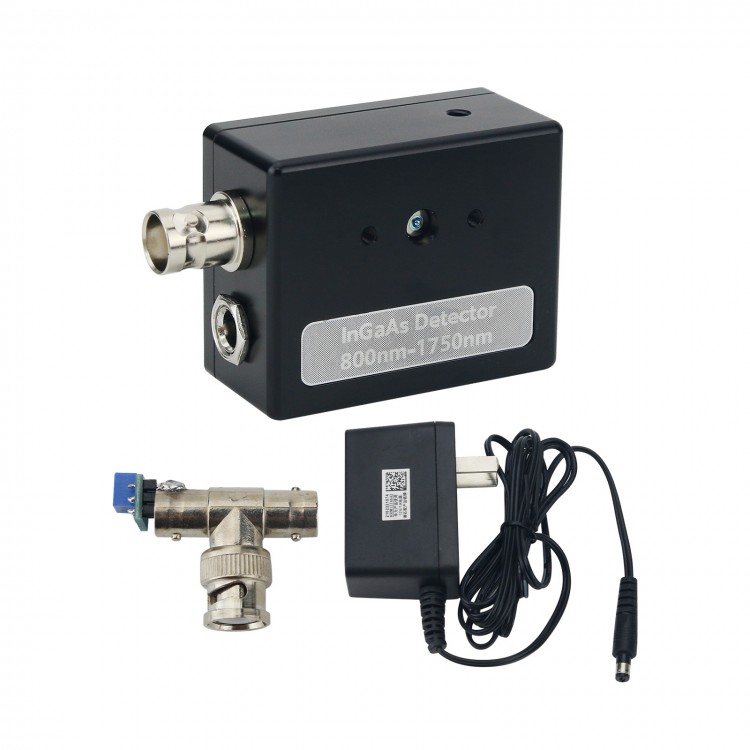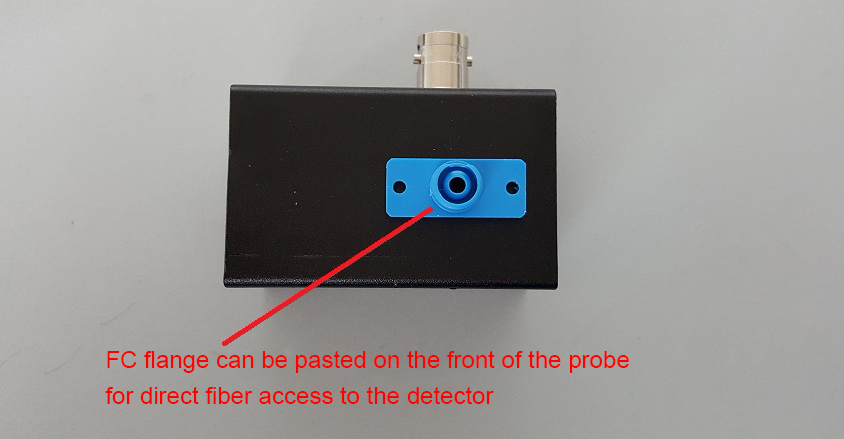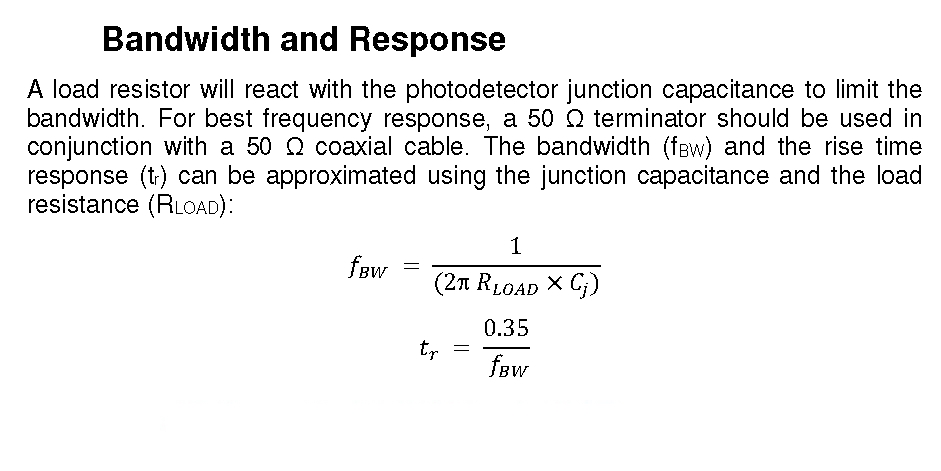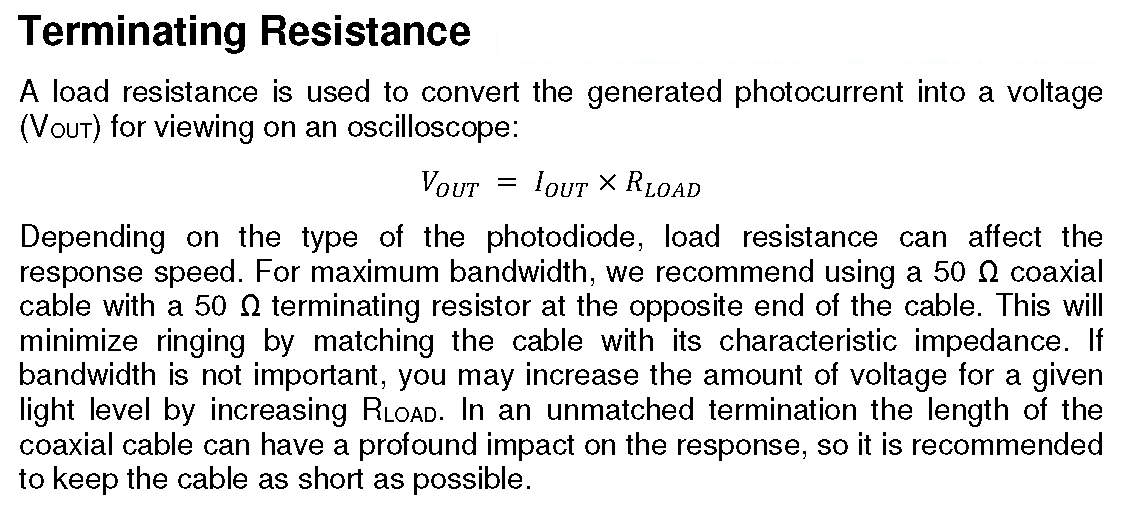
| Quantity | 3+ units | 10+ units | 30+ units | 50+ units | More |
|---|---|---|---|---|---|
| Price /Unit | $134.26 | $131.52 | $127.41 | $121.93 | Contact US |
 BN320 380-780nm Handheld LED Spectral Illuminometer CCT/Lux/Ra Testing with 4-inch HD LCD Touch Screen
$273.04
BN320 380-780nm Handheld LED Spectral Illuminometer CCT/Lux/Ra Testing with 4-inch HD LCD Touch Screen
$273.04
 Secondhand Imported UP19K-50L-H5 Laser Power Energy Meter 90W/15J Rang & Software Display for GENTEC
$538.14
Secondhand Imported UP19K-50L-H5 Laser Power Energy Meter 90W/15J Rang & Software Display for GENTEC
$538.14
 F999M Portable Professional Leakage Detector for Water Pipes/Heating Pipes/Fire Hoses Leakage Detection
$498.30
F999M Portable Professional Leakage Detector for Water Pipes/Heating Pipes/Fire Hoses Leakage Detection
$498.30
800-1750nm 1GHz Photoelectric Sensor High-Speed Infrared Photodiode Photodetector Imported Core
Features:
1. Imported infrared photodiode for Hamamatsu
2. Type of diode: InGaAs
3. Wavelength response range: 800nm~1750nm
4. Maximum response frequency: 1GHz
5. Output voltage: 0V-12V (when the supply voltage is 12V)
6. The output impedance inside the detector is 1MΩ. For users to get the right response speed, the appropriate resistor must be connected in parallel to the output. For the detector to maximize the response frequency, its output must be connected to a 50 ohm-100 ohm resistor in parallel (generally 50 ohm terminals can be connected in parallel. Oscilloscopes with bandwidths greater than or equal to 300MHz also have their own 50 ohm impedance). The smaller the resistor connected in parallel at the output, the higher the peak power of the incident optical signal, otherwise the lower the output voltage. So users need to find a balance between bandwidth and voltage. In general, the detection pulse width is several hundred nanoseconds, picoseconds, or femtosecond laser pulses, and the output of the detector needs to be connected in parallel with a 50 ohm-100 ohm resistor. For the detector needs 500us to 500ns laser pulse, the detector output needs to be connected in parallel with a resistor of 1k-10kΩ. If the detector has several hundred milliseconds to 500us laser pulses, the detector output needs to be connected in parallel with a resistance of 10k-100kΩ. If the detector requires greater than 500ms or continuous laser, no parallel resistor is required at the detector output. However, when the output voltage is high, or to eliminate the influence of natural light, 100K resistors or potentiometers can be connected in parallel. This reduces outside noise and limits the amplitude of the output voltage.
7. Effective photosensitive diameter: 300um
8. Power supply voltage: 5V-12V
9. The default is the detection method of free space light entering the probe. If it is needed, a FC flange can be pasted in front of the probe, so that the detector can be directly accessed to with a FC fiber optic connector. Please specify in advance when purchasing. The detector shipped by default does not come with FC flange
Package Included:
- 1 x Photoelectric Detector
Note:
- Customizable detector with amplification function: A RF amplification (1MHz-100MHz); B Weak signal amplification, adjustable gain. If it is needed, please contact us to pay for extra costs. Thank you!

